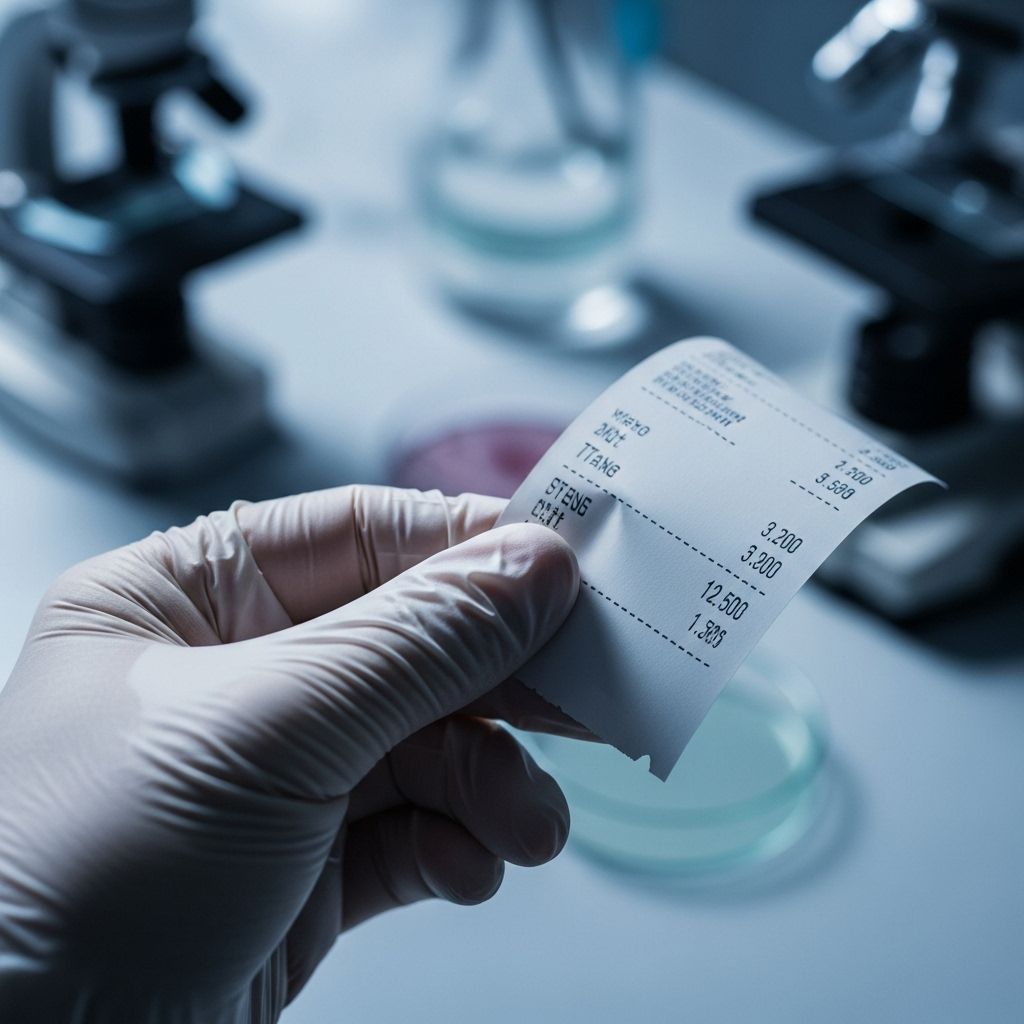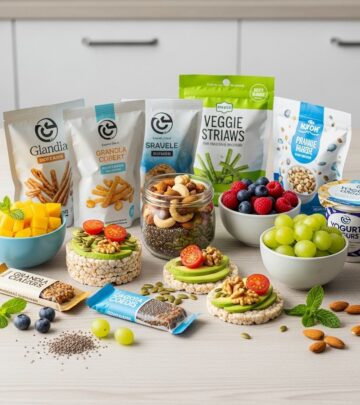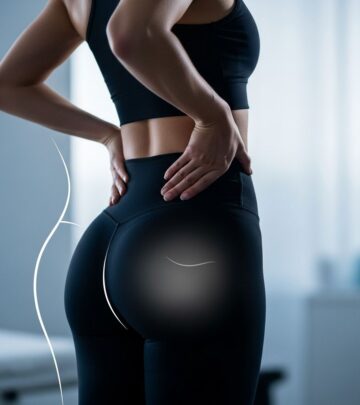Are Receipts Dangerous to Touch? What Science Tells Us
Thermal paper coatings release hormone-disrupting compounds that can linger on your skin.

How Dangerous Is It to Touch Receipts? Here’s What the Experts Say
Many people take receipts for granted as a normal part of shopping, but recent research and news stories have raised the question: Are paper receipts actually dangerous to touch? This article dives deep into the science behind receipts, examines their chemical contents, evaluates the potential risks of handling them, and provides practical, evidence-based steps you can take to minimize health concerns for yourself and your family.
Understanding What’s in a Receipt
Receipts are usually made using a special process called thermal printing. Instead of ink, thermal printing applies heat to heat-sensitive paper. This paper is coated with chemicals—and that’s where the controversy begins.
- Thermal paper is coated in layers of chemicals, including a developer that reacts to heat and darkens where the printhead touches.
- Historically, the developer was bisphenol A (BPA), but due to health concerns, many manufacturers now use bisphenol S (BPS)—a chemically similar compound.
- Studies show that BPS is present in up to 85% of US retail receipts, and like BPA, it can be absorbed through the skin when receipts are handled.
What Are BPA and BPS?
- BPA (bisphenol A) is a synthetic chemical used in plastics and resins. It functions as an endocrine disruptor, mimicking hormones in the body.
- BPS (bisphenol S) is a structural cousin of BPA, used as a replacement in many “BPA-free” products—but evidence shows it may have similar biological effects.
- Neither chemical is tightly bound to the paper, so simple touch can cause them to transfer to skin.
Why Do Receipts Contain These Chemicals?
The purpose of BPA, BPS, or similar chemicals in thermal paper is to allow fast, legible printing via a reaction to heat rather than ink. This makes transactions quicker and avoids smudging. However, this convenience comes with a chemical trade-off.
The coating of BPS or BPA usually comprises about 1% of a receipt’s total weight. While this seems small, these substances leach out of the paper much more rapidly than from hard plastics or bottles, and touch is enough to expose skin to meaningful amounts .
How Do These Chemicals Enter Your Body?
- Skin absorption is the most significant route. When you handle receipts, the bisphenol molecules can transfer to your fingers and palms.
- Indirect ingestion can happen if, after handling receipts, you touch your mouth, face, or food, causing the chemicals to enter your digestive tract.
- Unlike chemicals eaten in food (which pass through the liver and are filtered), absorbed bisphenols may more directly enter the bloodstream, sometimes resulting in higher blood levels of these chemicals.
What About Hand Sanitizers and Lotions?
Several studies indicate that using hand sanitizers or moisturizers before handling receipts can increase the rate of absorption, making it easier for these chemicals to cross your skin barrier. This is an additional consideration for those who regularly sanitize or moisturize their hands.
What Are the Health Risks of BPA and BPS?
Both BPA and BPS belong to a class of substances known as endocrine disruptors. These manufactured chemicals can interfere with the body’s hormone system in various ways:
- They can mimic natural hormones (especially estrogen), potentially sending confusing signals to organs and body systems.
- Prolonged or elevated exposure may contribute to disorders related to metabolism, reproduction, and hormone-sensitive organs.
| Chemical | Potential Health Effects | Where Found |
|---|---|---|
| BPA (bisphenol A) |
| Thermal receipts, plastic containers, can linings |
| BPS (bisphenol S) |
| Thermal receipts, some plastics |
Who Should Be Most Concerned?
- Retail cashiers and servers: Frequent handling, sometimes hours daily, leads to higher potential exposure.
- Pregnant women: Bisphenols can cross to the fetus, which is more vulnerable to hormone disruption.
- Infants and children: Developing bodies can be more sensitive to endocrine disruptors.
- Individuals with hormone-related health issues, high cholesterol, liver disease, or other metabolic risk factors: Underlying conditions may be aggravated by chemical exposure.
Evidence From Recent Studies
Recent independent studies underline the relevance of these concerns:
- A 2023 study in Environmental Pollution found BPS in a remarkable 85% of receipts studied across national and local retailers in the U.S.
- The Center for Environmental Health reported that just 10 seconds of receipt handling can expose consumers to BPS above California’s safety warning limit.
- Workers who wore gloves while handling receipts did not have elevated levels of BPA or BPS in their systems by the end of a shift, suggesting simple protective measures are effective.
Frequently Asked Questions (FAQs) About Receipt Safety
Do I need to panic if I touch receipts occasionally?
No, occasional contact with receipts is unlikely to cause significant harm in healthy adults. Experts caution against alarmist news or viral social media videos that exaggerate immediate risks. However, repeated and prolonged contact may pose cumulative risks, especially for sensitive populations.
What can I do to reduce exposure to BPA and BPS from receipts?
- Wash your hands with soap and water after handling receipts, especially before eating or touching your face.
- Decline receipts when possible, or opt for digital receipts if offered.
- Use gloves (nitrile or reusable work gloves) if you handle receipts often for work. This is one of the best-proven ways to limit skin exposure to bisphenols.
- Avoid handling receipts after applying lotion or sanitizer, as these products can increase the absorption of chemicals.
- For families, store receipts out of reach of children and regularly dispose of unnecessary receipts.
Are receipts the main source of BPA or BPS exposure?
For most people, food and drink packaging contribute the greatest total bisphenol exposure. However, because chemicals in thermal paper are loosely bound, touching receipts can be a surprisingly significant source, especially for frequent handlers.
Is it safe to recycle receipts?
No. Most curbside recycling programs do not accept thermal paper because the bisphenols can contaminate recycled paper products. Place receipts in the trash, not the recycling bin, unless your local guidelines specifically say otherwise.
What about shipping labels and tickets?
Many shipping labels, tickets, lottery slips, and similar items are made from thermal paper and carry the same risks as standard receipts. Handling guidelines are the same: wash hands, avoid unnecessary touch, and use gloves if handling frequently.
Expert Insights: Medical and Scientific Perspectives
Prominent medical experts urge perspective but also awareness when it comes to receipts:
- According to Dr. Philip J. Landrigan, director at Boston College, bisphenols “hack the endocrine system and send out garbled signals to the organs of the body, which can result in diseases.”
- Dr. Landrigan emphasizes that those who handle receipts daily, especially pregnant individuals, should be most wary as the fetus is more vulnerable to chemical exposure.
- Dr. Rebecca Miller, lead scientist in a major study, warns that bisphenol chemicals are “not truly bound” to the receipt and “simply touching a receipt is enough” for exposure.
- Scientific analyses demonstrate that wearing gloves or washing hands soon after handling receipts effectively reduces exposure.
What Stores and Manufacturers Are Doing
Growing awareness of bisphenols’ risks has prompted some U.S. retailers and manufacturers to look for alternatives:
- Some chains now provide digital or emailed receipts when requested.
- A minority use receipts labeled “phenol-free”, but independent testing sometimes finds BPS or related chemicals even in these cases.
- Regulatory action, such as California’s Proposition 65, is pushing retailers to reduce or label bisphenol use in consumer products.
Simple Tips for Safer Receipt Handling
- Opt-Out: Politely decline printed receipts unless you need one. Request digital versions when available.
- Wash Up: Wash hands thoroughly after handling receipts and before preparing or eating food.
- Glove Up: Workers in retail, hospitality, or shipping who handle receipts or labels routinely should wear gloves.
- Minimal Contact: If you must keep a receipt, store it in an envelope or designated spot away from direct contact with other items, especially food or children’s belongings.
- Educate and Advocate: Raise awareness among coworkers and loved ones, especially those at higher risk due to frequent exposure or pregnancy.
Final Thoughts: Should You Be Worried?
For the average person, touching receipts occasionally is not likely to cause harm or hormonal imbalance. However, repeated exposure may add up, and those who work with receipts or thermal paper regularly should take precautions. For everyone, small steps—washing hands, declining receipts, and choosing digital options—can minimize possible risks and reduce reliance on hormone-disrupting chemicals in daily life.
Frequently Asked Questions (FAQs)
Q: Can touching receipts make you sick immediately?
A: Direct, short-term contact is not likely to cause sickness or hormonal issues in healthy people. Risk builds up over repeated or prolonged exposures, particularly for vulnerable groups.
Q: Are ‘BPA-free’ receipts safe?
A: Not necessarily. Many BPA-free receipts instead use BPS, which is structurally and biologically similar to BPA and may pose similar concerns.
Q: Should pregnant women handle receipts?
A: Pregnant women should minimize touching receipts, as bisphenols can cross the placenta and may affect fetal development. Using gloves and handwashing are effective risk-reduction steps.
Q: Is there a safe way to store receipts at home?
A: Yes—keep them in a separate envelope or folder, out of reach of kids, and minimize handling. Wash hands after touching them.
Q: What should I do if I handle receipts for work?
A: Wear gloves, wash your hands regularly, and encourage your employer to explore digital options or safer alternatives for receipts and labels.
References
- https://preventcancer.org/article/paper-receipts-cancer-study/
- https://www.goodhousekeeping.com/health/a65466557/is-it-dangerous-to-touch-receipts/
- https://www.mcgill.ca/oss/article/health/turning-heat-thermal-paper-receipts
- https://www.pca.state.mn.us/business-with-us/bpa-and-bps-in-thermal-paper
- https://pmc.ncbi.nlm.nih.gov/articles/PMC3261950/
Read full bio of medha deb












